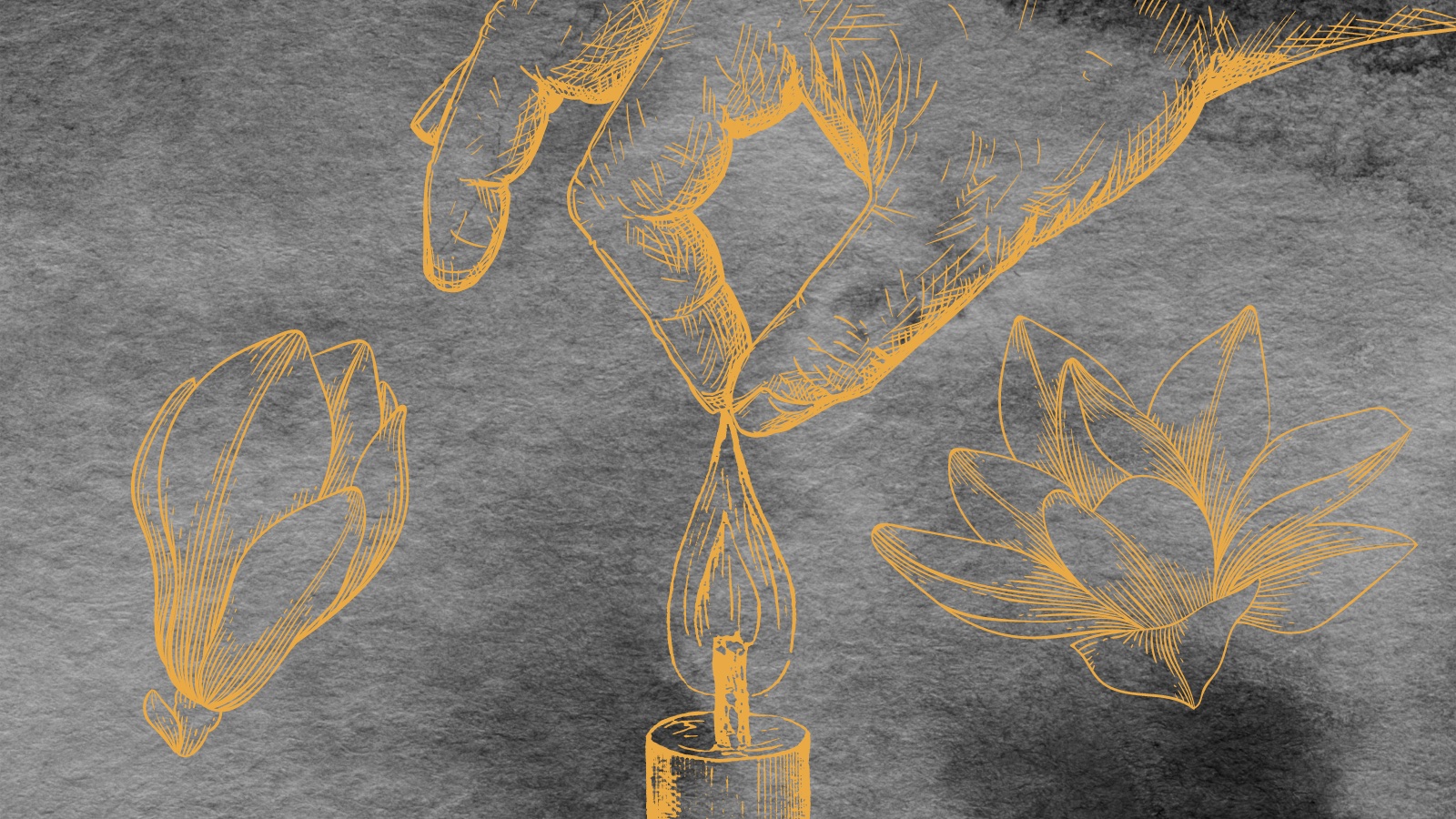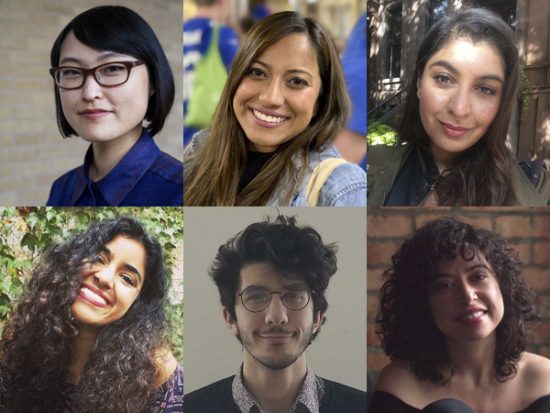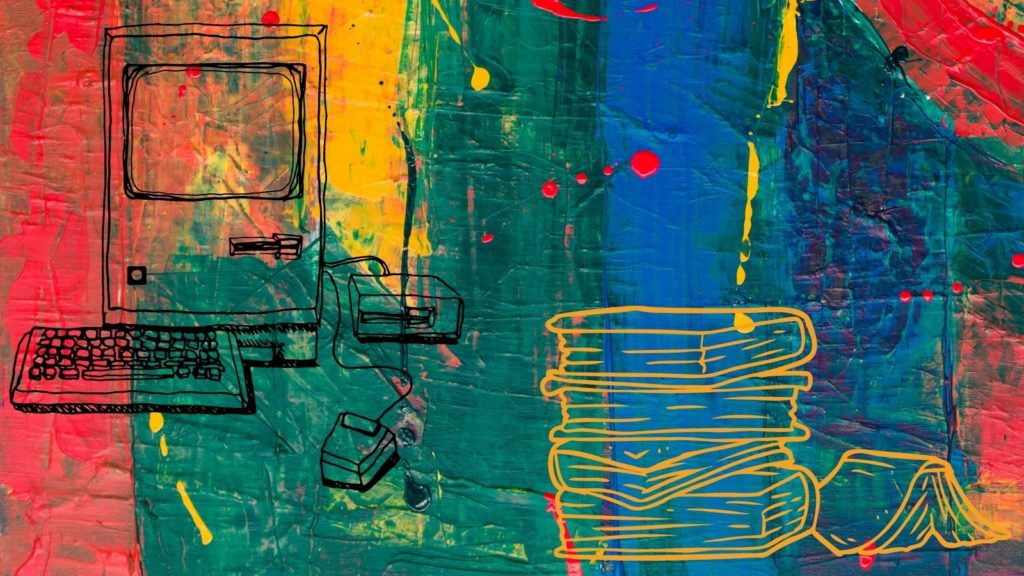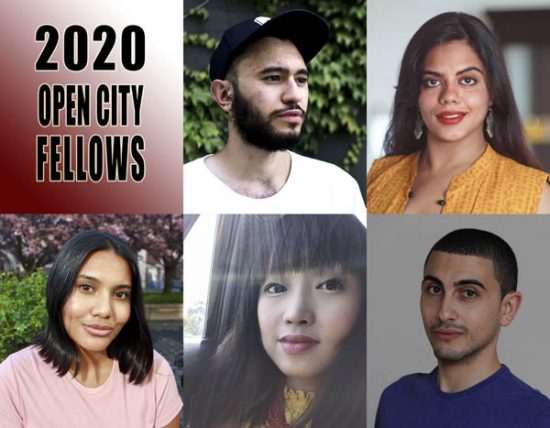In which we awaken and make new meaning from our archive

December 23, 2021
As the Asian American Writers’ Workshop celebrates its 30th anniversary, we invited current and former editors, writers, community members, and workers to make new meaning from the Workshop’s archive. Together, they have awakened AAWW’s print anthologies and journals, returned to the physical spaces of the Workshop starting from our basement location on St. Mark’s, and given shape to the stories from within AAWW that circulate like rumors, drawing writers back again and again. In revisiting the Workshop’s history, we hope for insight into the ever-changing landscape of Asian diasporic literature and politics and inspiration to guide us forward in our next 30 years. Browse through the work published in our AAWW at 30 notebook below.
Inspired by Black Lightning, one of the Workshop’s first print books and a major text in Asian American poetics, Eileen Tabios and Arthur Sze dig into Sze’s craft by sifting through the eighty-eight drafts of his poem “The White Orchard.”
Luis H. Francia and Eric Gamalinda reminisce on when the Writers’ Workshop’s Small Press Division decided to flip a derogatory term and invested it with power, and the decisions made in the making of the anthology Flippin’: Filipinos Writing on America.
Former Open City Fellow Humera Afridi offers us a snapshot of her writing life, kicking off a new series of short interviews with former fellows.
Setting her gaze on the Workshop’s fabled green couch, former AAWW programs associate Nadia Q. Ahmad reflects on work, rest, and the objects that came to hold meaning at AAWW.
Decaying 90s desktop computers, zany problem-solving on a shoe-string budget—former AAWW art director Britt Gudas builds a portrait of what constitutes institutional memory.
Former AAWW staff reflect on the quirks and charms of the Workshop’s many spaces—from a basement in the East Village to Zoom—as a home for Asian and Asian American literary culture.
Former managing director Peter Ong remembers AAWW’s East Village basement office in the late nineties as a place that wove together the mundane and profound.
Jeannie Wong, AAWW’s administrative director from 1998 to 2009, recalls the people that came through the Workshop’s East Village and Koreatown offices and made it feel like home.
From her first time visiting the Workshop as a middle-schooler to her first day on the job, Amita Manghnani depicts the Workshop as a place of deepening political commitment and connection.
Through memories of many nights at AAWW’s Chelsea office, Sophia Hussain describes it as a space to experiment and imagine, a space where “theorizing was happening in our midst.”
After nearly two years of online programming, executive director Jafreen Uddin reflects on virtual space and the community at the heart of AAWW’s work.
For years, AAWW ran the East Coast’s first Asian American bookstore out of its space. Former bookstore managers and staff transport us back in time. And with the recent opening of Asian American woman-owned Yu and Me Books in New York City, Asian American booksellers today write about what it has meant to find and share Asian diasporic literature. Postcard-sized essays by Parag Rajendra Khandhar, Bonnie Chau, Nancy Yap, Erika Pallasigue, Pimpila Howe, Arvin Ramgoolam, Jeannie Wong, and Lucy Yu.
Before the Asian American Writers’ Workshop, there was Basement Workshop, an Asian American arts space borne out of the political movements of the ’60s and ’70s. Kimiko Hahn, Jessica Hagedorn, and Kyle Dacuyan draw connections from Basement to AAWW, and imagine a future in which raw, daring arts spaces are given their due.
In Quiet Fire: A Historical Anthology of Asian American Poetry, published by AAWW in 1996, Kimiko Hahn writes of her entry into the NYC poetry scene through Basement Workshop. An essay from the archives.



